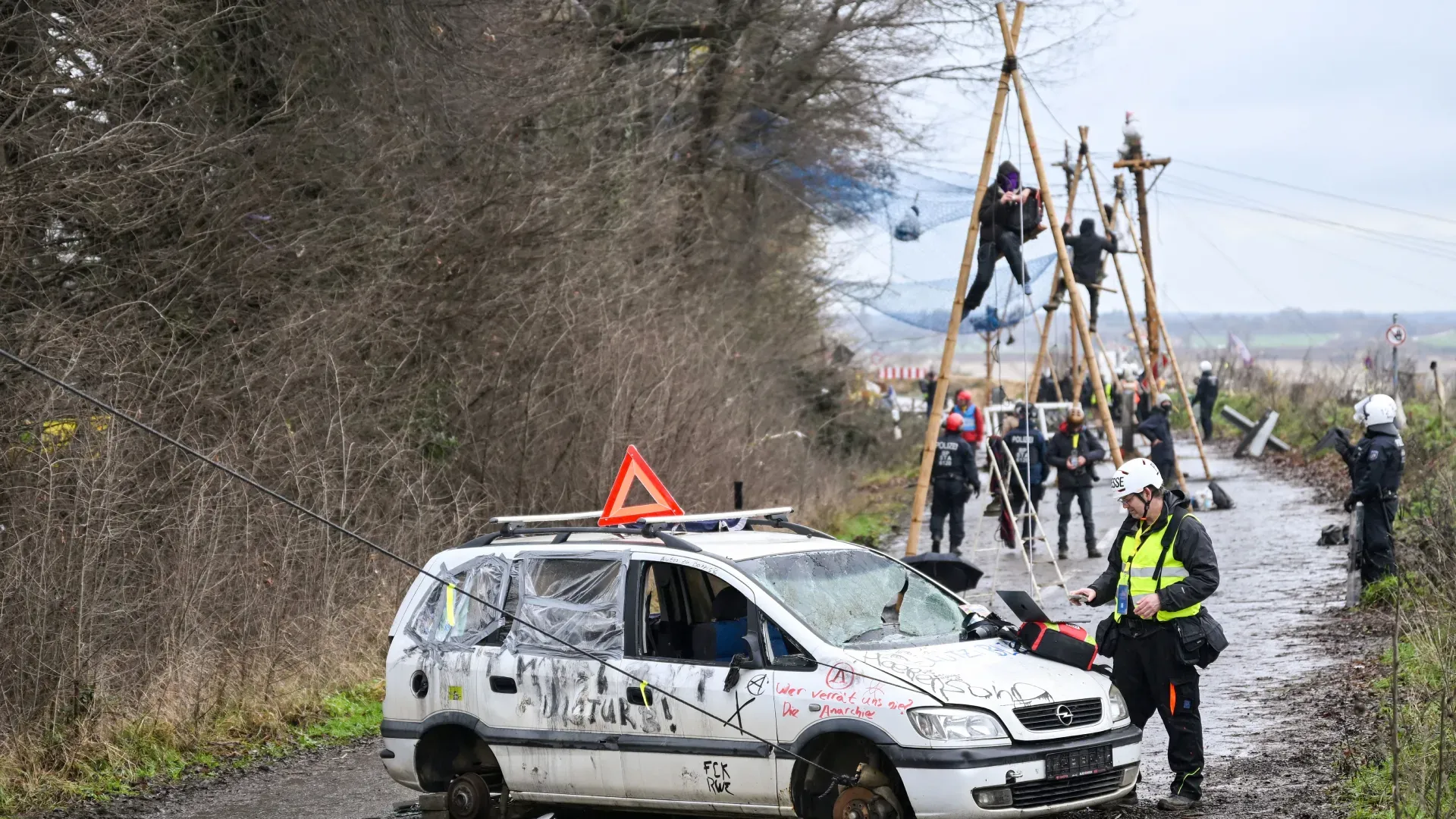The high frequency of far-left and environmentalist attacks targeting German businesses is likely to persist this year.
This assessment was issued to clients of Dragonfly’s Security Intelligence & Analysis Service (SIAS) on 17 April 2023.
- Far-left and environmentalist arson attacks and vandalism of corporate sites in Germany are likely to persist this year
- Companies with perceived links to fossil fuels appear to be most at risk, but some far-left actors are targeting large firms more indiscriminately
- We doubt that the currently elevated pace and impact of attacks will escalate markedly this year
Several companies and local media outlets have recently reported a spate of such attacks on company sites. This seems to be specifically in response to the recent expansion of the Garzweiler coal mine near Dusseldorf and Germany’s temporary pivot to coal energy. Firms seen as associated with fossil fuels appear to be most at risk. Due to the limited capabilities of far-left and environmentalist groups, these attacks will for now probably occur no more than once a week and cause only material damage.
A rise in attacks this year
The trend appears to have started in January this year. Local media outlets in Berlin and Munich have in recent months reported a series of weekly ‘climate activist’ and ‘left-wing extremist’ attacks targeting companies. Several representatives of firms based in Germany, quoted in local media outlets, have also referenced an ‘uptick’ or ‘trend’ of far-left and environmentalist attacks at their company sites since the start of 2023. And the Office for the Protection of the Constitution in Saxony has warned of radicalisation and increased activity in climate and far-left circles.
Far-left (including left-wing extremists and anarchists) and environmentalist targeting of business in Germany appears to be driven by two developments:
- The recent expansion of the Garzweiler surface mine in North Rhine-Westphalia, resulting in the village of Lutzerath having to be cleared
- The German government’s temporary broader revival of coal energy in light of the economic and energy-related consequences of the war in Ukraine
Several groups that have publicly claimed attacks have cited the Garzweiler coal mine, along with Germany’s continued use of fossil fuels, as among their motives. Far-left and environmentalist actors have recently made similar statements on the extremist channels that we monitor. As the high pace of attacks is a recent development, the government does not yet appear to have published official figures on them. But the frequency of reports by local media on the phenomenon suggests that attacks are occurring nationwide on a roughly weekly basis, rarely with more than two incidents in a week.
Businesses seen as associated with fossil fuels most at risk
Companies blamed by activists for climate change appear to be most at risk. Specifically, this is those perceived as supporting, funding or using fossil fuels. Based on recent attacks, this includes car manufacturers, transportation companies, and businesses in the coal, oil and gas industries, including those that supply machinery and technology to these sectors. There is a reasonable chance that investment banks and government institutions seen as associated with fossil fuels will also be targeted. And some far-left groups seem to target companies they perceive as especially ‘capitalist’ and ‘exploitative’ more indiscriminately.
Attacks against businesses by far-left and environmentalist actors will probably intensify around other specific developments, including:
- Highly-publicised trials of far-left and environmentalist actors or mass arrests
- Announcements of expansions, developments or restorations of oil, gas or coal facilities
- Highly-publicised fossil fuel licences and agreements, or other major corporate deals
- Profit-reporting for large companies, fossil fuel businesses or related investment firms
Tactics adaptable but capabilities limited
Far-left and environmentalist actors using online portals like Indymedia have been inciting supporters to carry out more attacks. But their ability to escalate seems limited. Most attacks in the coming months will probably largely be limited to arson on cars in and around office locations, and vandalism of exterior office areas, such as paint throwing or window smashing. Damage and disruption (including arson) to production facilities, machinery and roads and railways near companies are also likely. An attempt at similar vandalism of interior office space is also possible, if not probable, as was the case in France recently.
Activists are likely to adapt their existing tactics. A corporate security representative cited in Berlin’s local media recently noted that arson attacks were becoming more brazen, going from burning cars in public areas to targeting vehicles and machinery, such as cranes and excavators, on private sites with security. Due to the decentralised nature of far-left groups, the types of tactics and adaptations are substantially dependent on location too. For example, they have appeared to use butyric acid only in the Bremen area, when targeting office exteriors. So far we have not seen reports of activists directly targeting corporate employees.
The grievances of far-left and environmentalist actors are very unlikely to ease in the coming months. And despite police efforts to monitor and limit attacks, and arrests of several extremists, far-left and environmentalist groups remain deeply hostile towards businesses they associate with climate change, along with those perceived as particularly ‘capitalist’ and ‘exploitative’. The German authorities have also recently noted that such groups continue to be able to recruit and receive sympathy, especially among students. So violent activist attacks seem unlikely to become less frequent in the coming months.
Image: Environmentalists sit on so-called tripods in the village of Luetzerath, western Germany, on 11 January 2023. Photo by Ina Fassbender/AFP via Getty Images.







